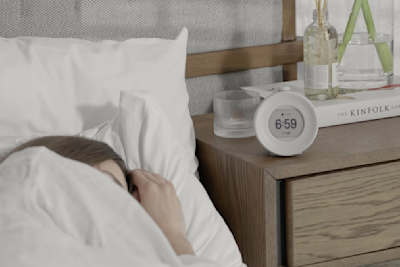
What is Mindful Breathing & why does it matter?
Most of the time, breathing is an unconscious and automatic process. We don’t even think about it. However, of all of the automatic processes in our body, only a few are controllable. Breathing is one of them.
Although centuries of wisdom and decades of scientific research have taught us to pay attention to the way we breath, as it’s one of the most basic of things we do each day, most of us tend to overlook the significance of proper breathing.
Mindful breathing not only allows you to observe yourself breathing, but also gives you the ability to regulate your breath. This powerful practice offers you the opportunity to strengthen the connection of your body and mind.
The Science of Breathing
The science of breathwork rests on ancient foundations. For centuries, many traditional cultures have been aware of the importance and significance of mindful breathing, utilizing breathing exercises as a way to improve health and well-being.[1]
Over time, science has confirmed what ancient cultures have known all along, that mindful breathing has the proven ability to, not only help us center, calm, focus, and concentrate, but also positively impacts our overall health and well-being. [2][3]
Mindful Breathing can be done anywhere, and at any time.
The brilliant thing about mindful breathing, sometimes referred to as conscious or controlled breathing, is that you can do it anywhere, and at any time. There are no difficult rules to follow when it comes to breathing exercises. Although certain meditation breathing techniques can help you learn specific exercises, in the end, the power of mindful breathing always lies within you.
Deep Breaths
The advice, “Take a deep breath” has been around for ages, particularly when it comes to dealing with stress and anxiety. However, did you know that there is documented scientific evidence which proves that mindful breathing is one of the most effective ways to lower everyday stress levels and improve your mood?
According to findings in the journal Cognition & Emotion, which covers cognitive neuroscience and cognitive psychology, with a specific focus on emotion, consciously regulating your breath can help effectively manage anxiety and stress levels, as well as feelings, moods and emotions. Simply just spending a few moments breathing fully can be very calming and centering. [4][5]
In fact, in order to evoke joy, participants in the above mentioned study were given the following verbatim instructions, “Breathe and exhale slowly and deeply through the nose.”
Also, a 2018 study, published in the Journal of Neurophysiology, indicated that controlling your breathing by counting individual breaths affects the “neuronal oscillations throughout the brain,” particularly in the region of the brain that corresponds to emotions. [6]
To Your PHYSICAL Health
When you regulate your breath and practice controlled breathing, you are engaging both your cardiovascular and nervous systems. With each mindful inhale and exhale, your breath helps regulate your body’s internal processes, and helps it recuperate and restore itself. The science behind mindful breathing is a helpful reminder of our bodies natural ability to be resilient and naturally reset.
When you regulate your breath and practice controlled breathing, you are engaging both your cardiovascular and nervous systems. With each mindful inhale and exhale, your breath helps regulate your body’s internal processes, and helps it recuperate and restore itself. The science behind mindful breathing is a helpful reminder of our bodies natural ability to be resilient and naturally reset.
Hypertension, commonly referred to as high blood pressure, is a serious medical condition that significantly increases the risks of heart, brain, kidney and other diseases. Since it’s a primary contributor to heart disease and stroke, the first and third leading causes of death worldwide, hypertension is a serious concern. According to the WHO (World Health Organization) an estimated 1.13 billion people in the world suffer from hypertension and fewer than 1 in 5 of those individuals have the problem under control. It is also estimated that the number of individuals suffering from hypertension will increase to more than 1.56 billion by the year 2025.[7][8]
Research from the American Heart/Stroke Association suggests that controlled slow breathing increases the body's “baroreflex sensitivity,” which is the mechanism that regulates blood pressure by slowing down the heart rate. Doctors believe that over time, using controlled breathing to lower blood pressure by slowing the heart rate may lower the risk of stroke and brain aneurysm, in addition to a general decrease of stress on the blood vessels. This translates to a great benefit for cardiovascular health. [9][10]
Sleep Better
Sleep takes up nearly one-third of our life. It’s a vital part of our physical health and psychological well-being because it allows our body the time and support to recover. However, in our busy and fast-paced society, filled with burnout, often caused by long days at work or school, or other emotionally draining situations, sometimes it can be difficult to relax and unwind in order to get a proper, restorative night’s sleep.
According to the American Sleep Association (ASA), insomnia is the most common sleep disorder. About 30% of adult individuals report suffering from some type of short-term sleep issue, and another 10% report experiencing president problems with falling or staying asleep.[11]
Insomnia can also have undesirable daytime effects. Some of these may include fatigue, problems concentrating, and irritability, just to name a few. Those symptoms can lead to a lack of energy and poor work or school performance.
Here, mindful breathing might prove to, also, be a natural solution. Slow, deep breathing can help you relax and sleep better throughout the night. Research has found that concentrating on your breathing can ease anxiety and perhaps help you sleep better. Additionally, mindful breathing has been shown to increase melatonin production which not only promotes relaxation, but is an essential sleep-inducing hormone. [12][13]
If you’re having trouble sleeping, why not try the 4-7-8 breathing technique described on our Mindful Breathing page.
As you see, although it might be easy to take your breath for granted (after all, it is an automatic process), using your breath in a deliberate manner can offer up some surprising health benefits.
If you’d like to read more about topics connected to this subject, please check out some of our other articles posted on our blog:
You might also like to join our FORUM Community where we discuss ideas and exchange information about all things connected to wellness and overall health & well-being.
Related stories

How Better Sleep Can Help Reduce Stress
Discover how better sleep reduces stress by lowering cortisol, improving emotional regulation, boosting resilience, and supporting your mental well-being.

5 Reasons to Switch to an E Ink Alarm Clock for Better Sleep
Switch to an E Ink alarm clock like Mudita Harmony to sleep better. Reduce blue light, EMFs, and nighttime stress for healthier, more restful sleep.

Rediscover Peaceful Mornings with an Analog Alarm Clock
Improve your sleep and well-being by replacing your phone with an analog alarm clock. Discover how Mudita Bell supports a digital detox and peaceful mornings.
If you'd like to receive the best stories from our blog, keep up to date with our progress and get notified about our product releases and special discounts.